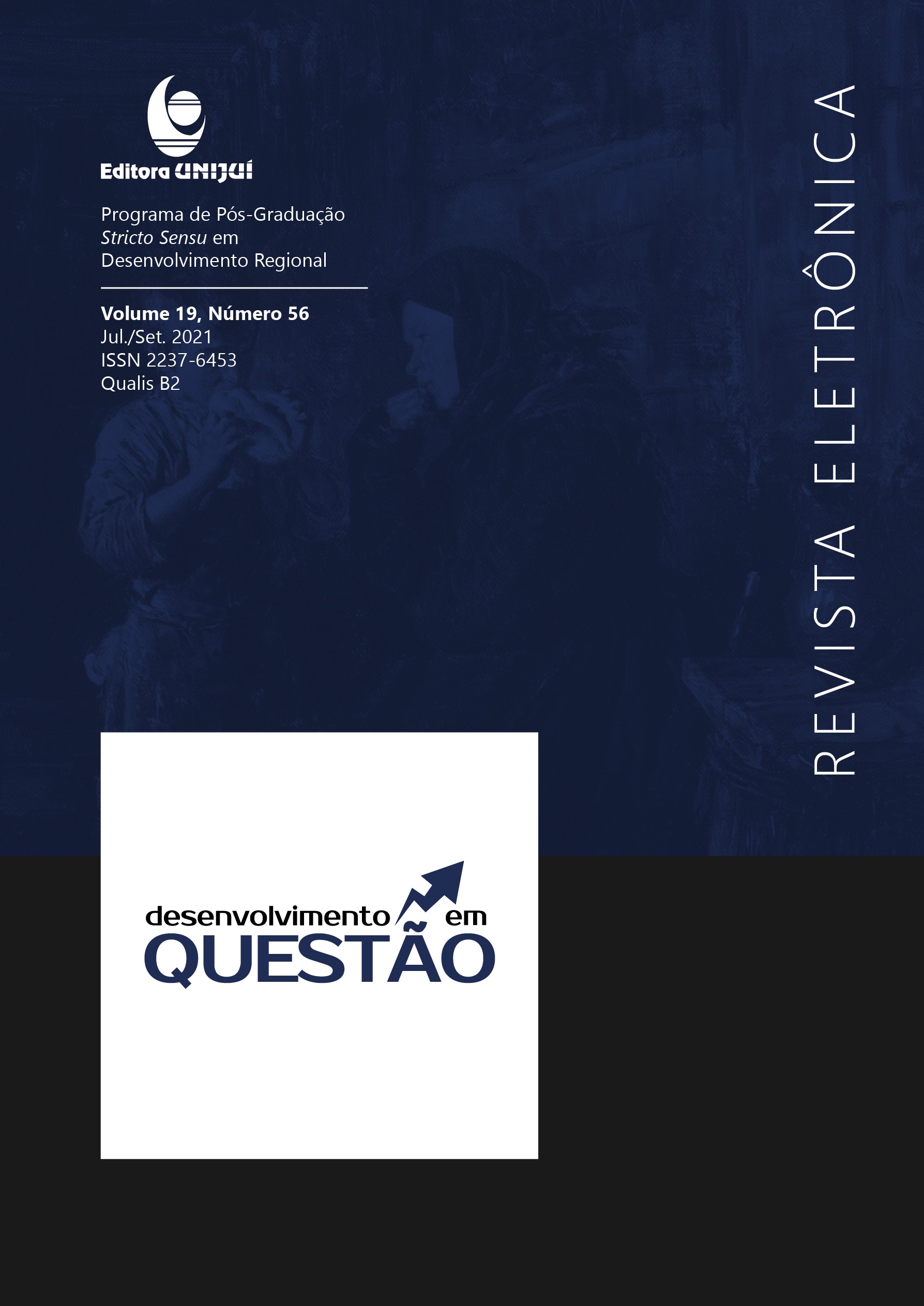A COMPARATIVE ANALYSIS OF SOCIAL ENTREPRENEURSHIP IN THE BRAZILIAN MACRO REGIONS
A COMPARATIVE ANALYSIS OF SOCIAL ENTREPRENEURSHIP IN THE BRAZILIAN MACRO REGIONS
DOI:
https://doi.org/10.21527/2237-6453.2021.56.10930Keywords:
Social entrepreneurship. Solidarity economic enterprises. Social value.Abstract
Social entrepreneurship (SE) emerged by creating business models towards social development through efficient solutions that can culminate in processes of social transformation. Face that, this research aimed to perform a comparative analysis of social entrepreneurship’s dimensions in the Brazilian regions to verify their variations along with the country. The categories of analysis used were opportunities, innovation, self-management, economic value, social value, and sustainable development. The study used secondary data based on information of 19,708 solidarity economic enterprises (SEE) collected in 2013 and 21,859 SEE in 2007. The research was applied with a quantitative approach. Data analysis was through descriptive statistics. Among the main results, it was verified that the Social Value and Innovation dimensions presented the highest levels among the categories of study, however, both had a percentage reduction in the analyzed period, along with Social Development and Economic Value. Only the Opportunity and Self-management dimensions showed a positive evolution. The findings indicated that in the Brazilian SEE, the perspective of the social value oriented towards economic value prevails. Also, the Brazilian SEE have characteristics inherent to the School of social entrepreneurship of the developing countries, i.e., they are motivated by the community development, opportunities and alternative to the unemployment, therefore, the balance proposed by the triple bottom line is not achieved. Besides, an overview based on the analyzed dimensions indicated that the Brazilian SEE are not consolidating.
Downloads
Published
How to Cite
Issue
Section
License
By publishing in Revista Desenvolvimento em Questão, authors agree to the following terms:
All works are published under the Creative Commons Attribution 4.0 International License (CC BY 4.0), which allows:
Sharing — to copy and redistribute the material in any medium or format;
Adaptation — to remix, transform, and build upon the material for any purpose, even commercially.
These permissions are irrevocable, provided that the following terms are respected:
Attribution — authors must be properly credited, a link to the license must be provided, and any changes made must be indicated.
No additional restrictions — no legal or technological measures may be applied that legally restrict others from doing anything the license permits.
Notices:
The license does not apply to elements that are in the public domain or covered by legal exceptions.
The license does not grant all necessary rights for specific uses (e.g., image rights, privacy, or moral rights).
The journal is not responsible for the opinions expressed in the articles, which are the sole responsibility of the authors. The Editor, with the support of the Editorial Board, reserves the right to suggest or request modifications when necessary.
Only original scientific articles presenting research results of interest that have not been previously published or simultaneously submitted to another journal with the same purpose will be accepted.
Mentions of trademarks or specific products are intended solely for identification purposes and do not imply any promotional relationship by the authors or the journal.
License Agreement (for articles published from 2025 onward): Authors retain the copyright to their article and grant Revista Desenvolvimento em Questão the right of first publication.











